Zelenskyy is both Ukraine’s international defender and a leader with a corrupt entourage. Internal sabotage, external pressure, and upcoming elections threaten his effectiveness and the protection of national interests.
Before President Volodymyr Zelenskyy’s evening meeting with the parliamentary faction on Thursday, it was still unclear which of the three available scenarios he would choose. The crossroads, against the backdrop of a shameful corruption scandal and Trump’s pressure to impose his own “peace” on us, was obvious. The external signal would be the refusal to sign an unjust agreement: “I am the guarantor of dignity and justice.” But internally — not necessarily.
ZN.UA reveals.
Nurturing uncertain hopes that the MPs would not be afraid to remind the president of his direct duties, we considered three options between which Zelenskyy could choose.
1. Reformatting the government and creating a coalition, forming a new technocratic cabinet.
(A chance to strengthen the state and gain time)
2. Preserving the corrupt entourage, the “mono-majority,” and the hand-controlled Cabinet of Ministers under Svyrydenko.
(Manipulation aimed at prolonging personal power, an authoritarian narrowing of the system, a path toward an even harsher end to the war)
3. A temporary pause — hoping that everything will “somehow resolve itself.”
(A veiled rescue of his own circle, further institutional decline, and loss of governability)
This was a bifurcation point — a moment when Ukraine stood at a crossroads of three paths, each capable of changing our course.
As expected, the results of the meeting gave a clear answer about where the president and his faction would lead us. “Servants of the People” chose the one who feeds them from the hand in parliament (envelope payments, resumed after a long pause: the back office through which MPs’ funds flowed was far from singular) rather than the people they are supposed to represent. Non-subject individuals are incapable of turning parliament into a subjective force.
At the moment of choice — when it’s not enough to just post on Facebook, but one must look the president in the eye and speak the truth — the long-bent backs remained bent.
In the end, Zelenskyy kept Yermak and his close circle by his side, hiding behind the 28 points of an unjust peace imposed on us. Ironically, both the Americans and the Russians helped him: Trump’s peace plan frightened Ukraine, its allies, and even the American establishment, yet unexpectedly played into Zelenskyy’s hands. The focus of attention inside the country shifted, and anti-corruption pressure was erased. We witnessed the “Oval Office effect,” when a president who was beginning to lose popularity instantly gains trust and ratings because “our people are being attacked.”
And now, almost a loser — the head of the presidential office, Andriy Yermak, whom everyone wanted removed just yesterday — is sweeping up the chips from the table. Meanwhile, the heralds of streams and vote croupiers, led by the head of the presidential faction, showcased themselves in a revealing way before the “first” and ingratiated themselves.
But did Yermak’s dismissal ever really matter? Why did Arakhamia remain silent at the faction meeting? How did it happen that the peace plan appeared simultaneously with the Mindichgate scandal? How can Zelenskyy and Ukraine withstand external pressure from Putin and Trump? Does the president understand that, inside, the system he refused to cleanse of corruption has already begun a quiet sabotage: “Akela has missed”?
Internal Corrosion of Zelenskyy’s Power
Why did Davyd Arakhamia and the MPs remain silent at the faction meeting? We don’t count Maryana Bezuhla, who dared to speak the name “Mindich” aloud in Zelenskyy’s presence and has long ceased to be a faction member. They say that at certain moments in the dialogue, MPs were persistent and even tried to appear as active agents. In their own way. Some even jeered when someone tried to raise issues far from the unwritten agenda: “Convince the president to dismiss Yermak.” Incidentally, Yermak shouldn’t have been at the faction meeting — his presence only confirmed a version previously circulating in the media: the president had already made his decision — Yermak would stay. And he did. Because “the Americans are pressing hard… we need to gather and move together… and don’t forget who brought you to parliament.” Those present acknowledge: Volodymyr Zelenskyy did not lose — he honed his acting skills. He managed to evoke emotion in the MPs. And that is already a victory. Although, at that moment, only within the bounds of the faction meeting.
“The ‘Oval Office effect’ cannot repeat endlessly,” one of the MPs shares. “A quiet sabotage of the entire system of power is what awaits us in the near future. This includes parliament, the security forces, and the Cabinet of Ministers. Parliament will be turbulent: there is an opposition that, in our case, will help the Servants ‘blow up’ bills. The security forces? That won’t happen like it did in the summer. The system’s timer has been switched on.”
Witnesses to the events in parliament claim that many people in power were ready to save Zelenskyy from his “other half” — Yermak. According to them, the most active roles in the process were played by faction leader Davyd Arakhamia, First Deputy Prime Minister Mykhailo Fedorov, Chief of the Main Intelligence Directorate Kyrylo Budanov, and Defense Minister Denys Shmyhal.
“MPs had an informal understanding that the main blow to the faction should be taken by Davyd,” another MP continues. “However, he did not enter into an open conflict with the president and did not voice a list of issues. Why? Perhaps he did not want to provoke the Americans’ dissatisfaction, with whom Zelenskyy will negotiate. Truth be told, we are inseparably connected to the president, and he is connected to us. Only he, in this situation, is the voice of the country.” According to our information, there was another reason for the faction leader’s silence: Davyd Arakhamia approached the president resolutely before the meeting — and left hesitantly. Volodymyr Zelenskyy knows how to instill fear.
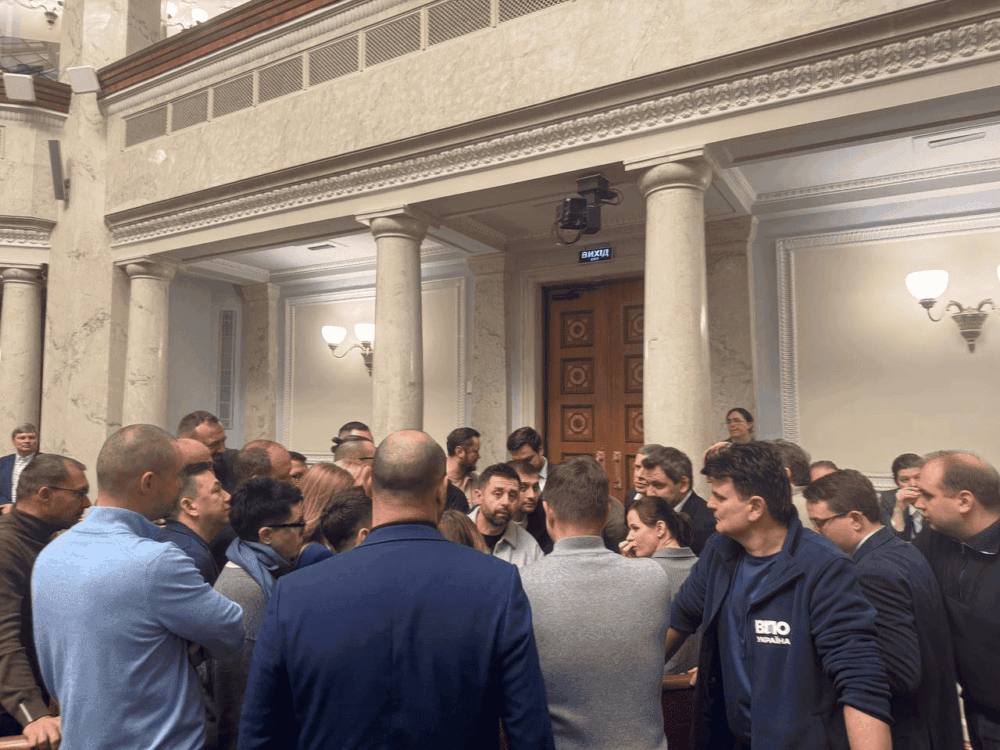
But in the context of the ongoing “Arakhamia revolt,” it is important to understand the main point: Davyd is not about change — he is about a banal reshuffling of the back office. Removing him and Hetmantsev from the tax flows in favor of the “Monaco” group deprived the faction leader of working capital. And for him, getting rid of Yermak is not about cleansing power.
Yes, he can still play a unifying role (or a divisive one — slowing down a vote if necessary), but this is certainly not the same role as Fedorov, Budanov, or Shmyhal have. They need to show results while maintaining direct contact with the president, not through Yermak’s underlings. Meanwhile, Arakhamia simply needs to return to a nourishing environment.
Why is Yermak not decisive for changing the system? Yermak is an old, overused target that everyone insists “must be removed.” But Yermak is ballast — he hasn’t mattered for a long time. Because Zelenskyy is the one who matters. It is Zelenskyy who chose Yermak, Mindich, and the rest, granting them unlimited powers and finally breaking the constitutional balance of power during the war. And all these people, who have essentially privatized the state, have suited him for all seven (!) years of his term.
Firing Yermak would certainly make some people happy. Because Yermak does not know how to make friends — he only knows how to create enemies. But for the country, it means absolutely nothing. The system has long been poisoned. So we should acknowledge that all the talk about a coalition, a “government of salvation,” and technocrats was our fantasy about something completely uncharacteristic of Zelenskyy. He will never give up what he considers his. Even if he previously seized it by force. And now, in such an extreme situation for the country, he has cemented his grip completely: “We won the election, they did not. Why give up what we won?”
At the same time, Zelenskyy has proved to be extremely vulnerable. Yermak is his Achilles’ heel — laid bare before the entire country. Removing Yermak would not take Zelenskyy out of his comfort zone (the president has long lived under immense stress) but out of his psychological balance, out of the familiar structure through which he holds power. Yermak is a creation of Zelenskyy — not Zelenskyy a creation of Yermak.
And once you accept this, it becomes clear: Yermak is not decisive.
Mindich and the “goodies” for the public. As we previously reported, despite Volodymyr Zelenskyy’s public claims that he has not spoken with Mindich since the investigation began (though the president did not clarify from which moment he is counting), our information shows that since June — when Mindich was sent to bring Chernyshov back — they called each other three times. And the president asked his friend not to return to Ukraine. Everything that happened afterward became, for Zelenskyy, more a matter of personal regret that such trouble befell Mindich than a shock that such a thing happened to the state.
That’s why the sanctions on his Israeli passport were merely theatrical. That’s why they were imposed for three years. That’s why his Ukrainian passport was annulled rather than his citizenship revoked. (The former, incidentally, can be replaced at any administrative services center.) Everything the president could do for “his own” in this situation, he likely did. Because he doesn’t abandon his own.
With ministers and other “figureheads,” Zelenskyy was much harsher.
Justice Minister Herman Halushchenko (a figure in an NABU investigation) and his protégé, Energy Minister Svitlana Hrynchuk, were “sent under the knife.” The supervisory board of Energoatom was dissolved, audits of state-owned companies were launched, financial authority reports are being updated, and the management of state enterprises is being reshaped…
According to our information, there will be even more casualties. On the list is the head of the State Financial Monitoring Service, Filip Pronin, who not only blocks NABU investigations by failing to respond to inquiries, but also allowed shell companies to “buy out” detainees with black cash. A figure so “creative” and prolific that the president is very pleased with him. The only nuance is that Pronin’s sabotage, now under the media spotlight, has become too glaring for anti-corruption activists. Once his toxicity outweighs his usefulness, Pronin will be dismissed — just like the irreplaceable overseer of law enforcement agencies, Oleh Tatarov. The president has already begun to question his effectiveness.
Deputy Prime Minister Oleksii Kuleba may also go — for example, during the budget vote. His resignation in exchange for votes is a perfectly realistic scenario. Kuleba, who brought the current head of the Kyiv City Military Administration, Tymur Tkachenko — the brother-in-law of NABU director Semen Kryvonos — to power, failed to carry out his tasks. He did not neutralize the threats, nor did he protect the president…
And a separate important part is the new personnel appointments. For the position of the now former minister of justice Herman Haluschenko, who has been summoned for questioning by NABU, the president has proposed Denys Maslov — the current head of the Verkhovna Rada Committee on Legal Policy. Does nothing about this bother you anymore? It doesn’t bother me. Especially after the president’s statement that Prime Minister Svyrydenko “only consults” with him when selecting people for the Cabinet. That’s absolutely true, if you clarify that she selects candidates from a list approved by Bankova.
External Challenge and Zelenskyy’s Role
As we said at the very beginning, the Russians and the Americans — knowingly or unknowingly — played into Zelenskyy’s hands, allowing him to shift the focus from a president compromised by large-scale corruption to an unshakeable Supreme Commander-in-Chief who challenges an unjust peace. The vow he made to his people yesterday in a public address — to defend Ukraine’s interests to the very end — worked. And not only within his parliamentary faction anymore.
The paradox is that not only is the role being performed brilliantly — Zelenskyy truly is the person and the institution that represents and will continue to represent Ukraine during the difficult negotiation process. But at the same time, he is also the person and the institution that refused to purge his corrupt entourage, critically weakening the governance system of a country at war.
And his media channels continue to feed the same public standing behind him the narrative: “NABU was used by the Americans and the Russians to force an unjust peace on us. Operation ‘Midas’ and the Witkoff–Dmytriyev plan coinciding in time is no accident.”
An unprepared listener or reader might fall for this. A prepared one knows that if anyone influenced NABU — pushing it to rush the release of the “Mindich tapes” — it was the president himself, who used the security services to pressure the anti-corruption bodies and investigators.
The main problem with Zelenskyy is that a separation in perception has already begun within both the political class and society between his two opposing roles. On one hand, he is the compelled defender of Ukraine’s interests. On the other, he is a corrupt, authoritarian leader who, at a critical moment, refused to purge the system. And this split cannot be masked by his speechwriter, Dmytro Lytvyn, with any text, no matter how brilliant. Especially since the power centralized by Zelenskyy (in violation of the Constitution) was not delegated to competent executors capable of configuring the state machinery to resist the aggressor. It has become the domain of ordinary thieves.
It is not surprising at all that the Russians continue to exploit our internal crisis. The belligerent Putin, dressed in uniform, has already gone on air to expose the essence of Zelenskyy’s power. The targeted blow was aimed not so much at Zelenskyy himself as at Ukraine’s reputation on the international stage. But the responsibility for this lies personally with Zelenskyy. Dignity cannot be read from a teleprompter — it comes from within. Or it doesn’t.
Regarding the peace plan and the timing of its appearance: a deep analysis is beyond the scope of this piece, but the fact that it appeared in the midst of a political crisis is reason enough to make a few remarks.
Firstly, for the first time since Trump’s peacekeeping initiative, a real document has been placed on the hypothetical negotiation table — a document whose existence has been confirmed by all parties: the United States, Russia, Ukraine, and Europe. But the problem is not even that it is written in the language of young racketeers, lacking diplomatic finesse; the problem is that Ukraine will have to enter the negotiation process precisely from this flawed sheet. And Zelenskyy has publicly confirmed that we are entering it.
It is from this very point that the most painful and complex issues emerge — those that bring to the surface all the social, political, and human traumas of Ukrainians. The victim rightly expects punishment of the aggressor (fighting for it for the twelfth year, shielding Europe), but instead sees 28 points in which no punishment is stipulated. Moreover, the aggressor’s gains are recorded, which we are being asked to accept. In essence — to capitulate.
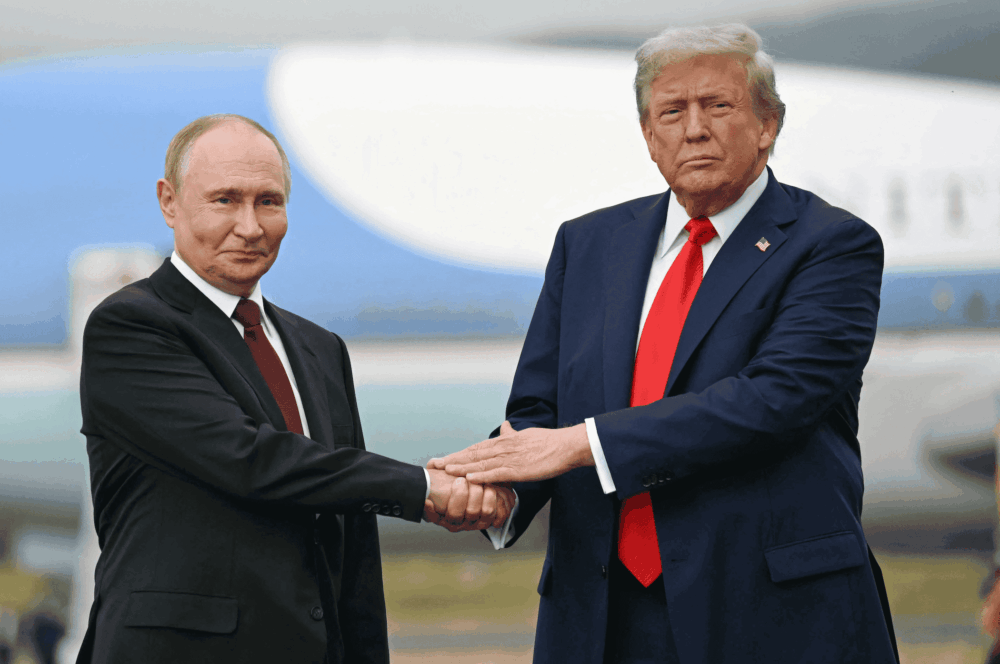
And here, the president Zelenskyy’s vow — “not to surrender Ukraine and to fight to the end for the national interest” — works. And here we must support him, uniting together. Under the immense pressure of an “unfortunate date — Thanksgiving,” when it would have been “convenient to sign an agreement.”
It should be noted that the American president operates no less strategically than Zelenskyy or Putin (for example, lifting American sanctions): by shifting attention to Ukraine, Trump simultaneously diverts focus from the scandal related to the Epstein case and his falling approval ratings.
Secondly, it is clear that both Ukraine and Russia — despite narratives about a “strengthening economy” and “unlimited human resources” — are approaching a point where they simply cannot continue the war at this pace.
Russia planned an 18% increase in tax revenue in its 2025 budget, but in reality is seeing a 4% decline compared to last year. The budget assumes oil at $59 per barrel, while it is trading at $36–39. Putin has two military budgets: an official one and a hidden one, spread across heavily indebted enterprises. And even with stronger state institutions, governance, and resources, Russia is faltering — including in terms of manpower.
Ukraine: winter, constant shelling, no electricity, heat, or water. Setbacks on the front lines, weak governance (including of the military), hundreds of thousands abandoning their units without authorization. Problems with mobilization, for which no one has taken responsibility, as well as with the overall mobilization strategy, which has triggered a youth exodus. Fatigue, apathy, disappointment…
And at the same time — a deep understanding that no one will do this but us. That we stand and will continue to stand. A straight back, even with buckling knees. The end will come sooner or later.
Third, Trump and Putin will apply pressure. They already are. The halt in weapons supplies (primarily air defense), and — even more importantly — intelligence sharing, will be used by the Americans as direct blackmail. And it is clear that the president’s tactics have changed: we are not refusing negotiations — we are ready for them. And the most important thing right now is not to sign the crippling terms being imposed on us.
We must defend our position as strongly as possible, keeping in mind not only that we have blackouts and a difficult situation at the front, but also that Russia is struggling too. And that Europe, as before, remains with us — despite this disgusting corruption scandal.
If Zelenskyy could not / did not want to ensure quality and effective governance inside the country, then he is simply obliged to fight tooth and nail for Ukraine’s interests on the external front.
At the same time, while supporting the president on the external front, we must remember: Zelenskyy at any moment may try to turn the scenario of internal political deadlock into a harsh tightening of the screws and a witch hunt. Against those who dared to speak out. Against his own people (the names of the organizers of the revolt have been mentioned). And against others. The negotiations may become a kind of immunity for him — something that justifies any action.
However, the irony of this historical moment is that no matter how much Zelenskyy tightens his grip, his strength is almost exhausted (the system will sabotage, and the anti-corruption bodies will resist). And time is nearly gone as well. After some document is signed, in 100 days — elections. And no one at the negotiation table will cross this point out. And then Zelenskyy will go. And we — and Ukraine — will remain.
Tags: corruption in Ukraine Frontline Reporting Government Reform Political Crisis Ukrainian Politics War and Governance yermak zelenskyy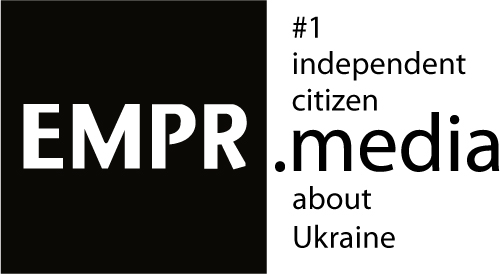
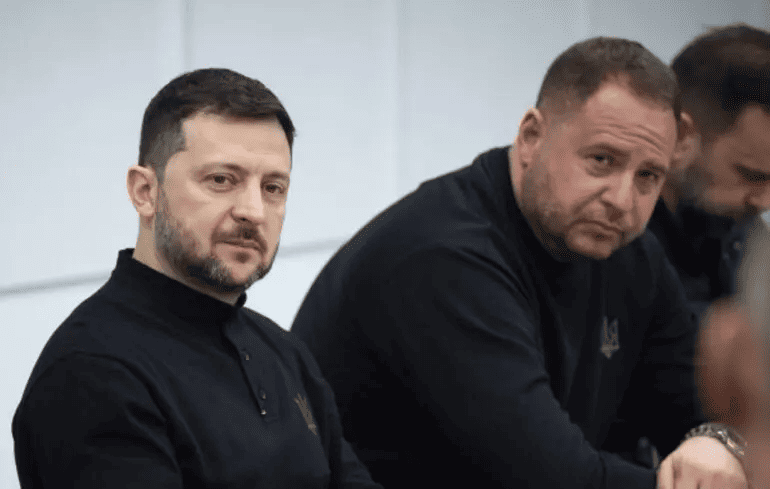

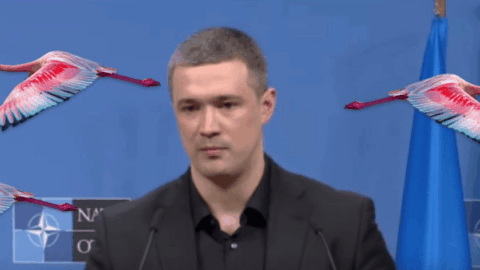




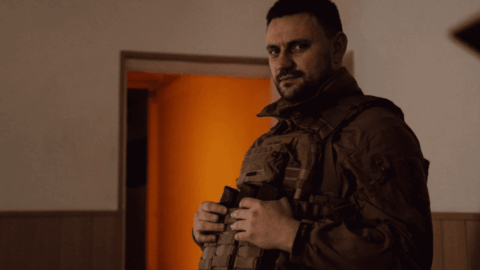




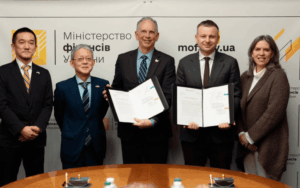
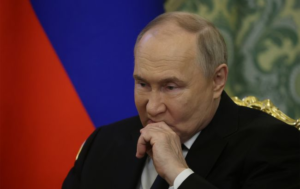
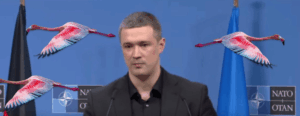

![Outdoor photo exhibition by Ukrainian photographer Oleksandr Hlyadelov on the fence of France’s Ministry for Europe and Foreign Affairs in Paris. :contentReference[oaicite:1]{index=1}](https://empr.media/wp-content/uploads/2026/02/photo-300x168.png)

